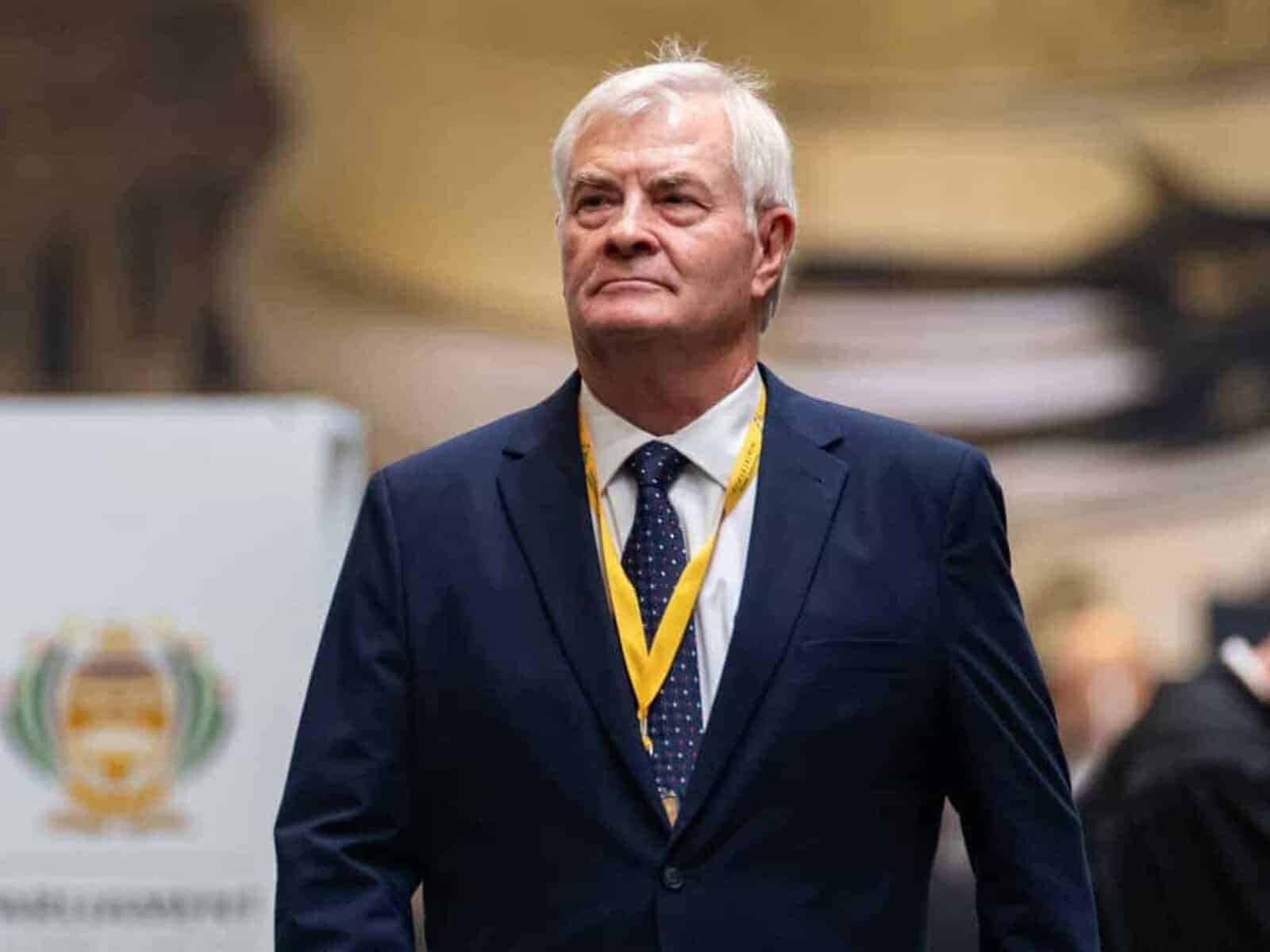Correctional Services Minister Pieter Groenewald has encouraged debate about corporal punishment but parliamentarians say it is 'belittling'.

South Africa’s history is too painful to consider physical punishment for criminals, parliamentarians say.
Members of the portfolio committee on correctional services on Tuesday took turns to challenge Minister Pieter Groenewald on his comments about corporal punishment made earlier this year.
Groenewald had suggested the return of corporal punishment for inmates during his budget speech in July.
‘Belittling’ and ‘undignified’
In his budget speech, Groenewald suggested alternatives to dealing with petty criminals detained by correctional services.
“If you look at our criminal justice system, we must start a debate to say shouldn’t we bring back corporal punishment?” Groenewald said in July.
Committee members asserted that Groenewald’s budget speech was the incorrect platform to suggest a debate or raise the subject of corporal punishment.
The ANC’s Mzwanele Sokopo stressed that corporal punishment was outlawed in 1997 and any debate over judicial punishment should be reserved for the courts.
“I don’t think it is proper — because we have our own challenges of overcrowding — that we are even tempted to consider things that were declared illegal,” said Sokopo.
The DA’s Kabelo Kgobisa-Ngcaba agreed that general debate was necessary, but argued that corporal punishment was unsuitable for adults.
“The thing with corporal punishment is that it is belittling and it’s undignified. It’s the type of punishment you would give to a little child because they are small and you can’t really reason with them,” she said.
Kgobisa-Ngcaba said such punishments were reminiscent of the pre-1994 government and reminded Groenewald that his position came with the responsibility to uphold constitutional guarantees.
“From where I stand, your attempt to spark debate was correct, but how you did it was not consistent with your position in government,” she said.
‘Harking back to a racist past’
Committee members repeated the unconstitutionality of corporal punishment, with Groenewald defending the need for debate and the mechanisms that exist to make constitutional amendments.
The ANC’s Erald Cloete agreed that physical punishments could be a deterrent, while the DA’s Janho Englebrecht accused Groenewald of trying to stir up populist support.
Committee members noted that public support for harsher, more immediate punishments were high — notably on social media — but the EFF’s Carl Niehaus took the parliamentary high road.
“It is not for us, as leaders, simply to buy into the emotions of people who are tired of crime.
“As leaders we have a higher responsibility and that is to deal with the situation in a responsible manner, understanding the history of where our country comes from,” said Niehaus.
Niehaus chastised the minister for advocating punishments that were “harking back to a racist past”, while accusing Groenewald of grandstanding.
“Minister, your statement was tone deaf, taking into consideration the reality of the history of South Africa.
“For those who suffered corporal punishment under the apartheid system, it was very simple, in almost every case, that it was die wit baas wat die swart man slaan,” said Niehaus.
Prison more inhumane
In response, Groenewald asked why it had taken several months for the committee to reprimand him, given their emotionally charged submissions.
Groenewald reiterated that he did not mention the reinstatement of the death penalty, but was focusing on those who spent months in overcrowded, dangerous cells while awaiting trial and sentencing.
He added that he was not suggesting police be able to beat suspects and release them, but that the process would be a formal sentencing by a court.
“I know the human rights organisations were up in arms. I invite them to go and look at the circumstances in our correctional services. [Suspects] get raped, assaulted… coming out a hardened criminal.
“What is more inhumane, corporal punishment, sentenced by a court, or those circumstances I have referred to?” he said.
ALSO READ: Groenewald denies majority of 385 life sentence parole applications
Dismissing claims of populism, Groenewald reminded the committee members that President Cyril Ramaphosa had told them that their places in parliament were given to them by the public.
“If we say we are members of parliament and the seat we occupy belongs to the people we represent, then we must listen to the people we represent,” said Groenewald.
The minister said he respected the committee’s views, but asked them to “think outside of the box” when dealing with criminals.
“I think what is happening in our centres is more than belittlement, it is more than degrading,” he said.
More prisons needed
Earlier in the day, Groenewald was answering questions on overcrowding at prisons and the costs associated with building new facilities.
The committee heard it would cost R3.1 billion to build two new 3 000-capacity maximum security prisons in the style of Kgosi Mampuru II.
Groenewald saidthat while the cost was high, the need was greater and that the cost would escalate to over R4 billion within five years if they did not act now.
“The reality is, after five years for instance, I will not be a minister anymore, but crime will increase in South Africa.
“There will still be more inmates and my vision is not only to say ‘what can we solve for tomorrow?’ We must now think to the future.
“The more effective our criminal justice system is going to become, the more people we are going to receive in our correctional services. We have to deal with that,” Groenewald said.
NOW READ: WATCH: Death penalty and corporal punishment return suggested as Groenewald fires off warning






